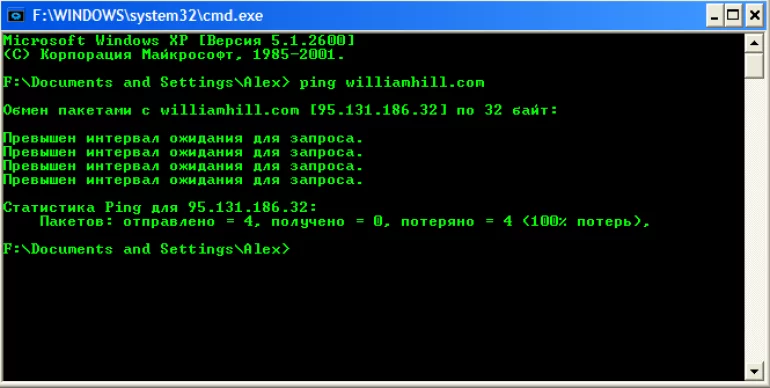_770.webp)
What are casinos? For most people, casinos seem to be luxurious places where nightlife is booming, excitement and happiness course gaily through the veins, millions of dollars are won, and huge fortunes are lost.
In general, it is true, but have you ever wondered why casinos have had a semi-legal status for many years and many countries are trying to restrict or ban casinos? Do you think that the state takes care of people who cannot resist gambling and become addicted gamblers? It may be accurate, but it is not the main reason.
Criminal structures worldwide use gambling to convert the proceeds of illegal activities into legitimate income. This happens everywhere: Australia, the United States, Switzerland, the United Kingdom, South Africa, and China. For criminal organizations, money laundering is an obligatory step in making money.
The procedure has remained unchanged over hundreds of years: the illegal income should be clean, i.e., obtained lawfully. Some criminals can spend half of the amount on money laundering, but the remainder will be clean. And exactly now, casinos are necessary! It is almost an ideal place to launder money.
The Highest Risks at Casinos
According to the definition, casinos are non-financial institutions. They offer gambling games as one of their activities, but they are also involved in various financial activities, making them similar to financial institutions. Where there are finances, there are risks of fraud.Most or almost all casinos perform financial activities, in particular:
- They take customers' money;
- They transfer funds;
- They exchange currencies;
- They provide safe deposit boxes and so on.
In most cases, financial services are provided 24 hours per day.
Diversity, frequency, and volume of transactions make casinos highly convenient for money laundering since the casino's nature is a business where cash is widely used, and most of the operations are carried out using cash. When a client visits a casino, he or she can make several cash or electronic transfers during the game or when he or she converts funds into cash.
Casinos are attractive targets for fraudsters engaged in money laundering. They exchange cash for casino chips, tokens, or guaranteed cheques and provide electronic transactions to fund or withdraw money from accounts.
Criminals' Interests in Casinos
Any casino is an attractive target for criminals. Casinos constantly serve as targets for criminals as an object of criminal influence and exploitation. Organized crime groups always seek ways to control casinos or to acquire the impact on the aspects of the financial operations of casinos. Criminals try to filter or find ways to facilitate the mechanisms of theft, fraud, money laundering, and other crimes.
The influence of criminals on casinos can be used to launder money and cover up some criminal actions outside the casino. In the criminal world, a casino is a place where criminals and persons associated with organized crime enjoy a rest and simultaneously launder money obtained by criminal means. Gambling establishments also cause additional crime activities such as usury, robbery, theft, and other crimes.
The following casinos have strict AML policies.
| Casino | Withdrawal methods | Accepted currencies | |
|
+5
|
$, €, ₽, M, Br, R$, Ft, Rs., KZT, C$, kr, zł, L, UZS, ₴, ¥, лв, YTL, ₩ | ||
|
+3
|
€, ₽, R$, zł, kr | ||
|
+6
|
$, €, ₽, ₴ | ||
|
+3
|
$, €, ₽, KZT | ||
|
+3
|
$, €, ₽, R$, Rs., C$, zł |
Usury in Gambling
Usury significantly prevails in some casinos. Usury is the crime of making monetary loans at excessive interest rates, which are then returned to lenders even using blackmail or threats of violence. Usury may be financed and supported by the network of organized crime groups. It may also be related to money laundering.
Moneylenders usually work with addicted gamblers who have problems with gambling or players who have financial problems. If such a player becomes a victim of usury, he or she is almost always forced to participate in money laundering in casinos.
Casino Payment Tools
Casinos use various payment tools to create convenient conditions for their clients. Let's enumerate them:
- cash,
- chips,
- TITO systems,
- credits of slots,
- cashier's orders,
- cheques,
- gift certificates,
- chip purchase vouchers,
- gift cards.
Each casino uses payment tools differently, as local regulators and casino structures influence them. However, all of these tools are often used to launder money by converting funds from one form to another.
(Here is a brief explanation for those who do not know the TITO system. Ticket In/Ticket Out is a system that allows slot machines to receive bills or slips of paper with a barcode indicating the amount of money (Ticket In) needed to start the game. This system, in particular, prints out a barcoded slip of paper with the indicated amount of credits if the player wants to withdraw money from this slot (Ticket Out).
Then, the player can redeem his slips of paper for cash either at the cashier or at an automated kiosk. Users can also use another TITO slot to continue the game. The computerized kiosk is a multifunctional device connected to the network server. It can perform various financial transactions for clients. In particular, it allows redeeming slips of paper and scratch cards for cash or currency for another currency (for example, to form smaller accounts or change money for coins).
It also allows paying out points for participation in the slot players' club, buying barcoded slips of paper for slot machines, and making electronic money transfers.)
Ways of Money Laundering in Casinos
The use of casino payment tools (cash/chips/TITO systems/ credits of video slots/cashier's orders/cheques/gift certificates/chip purchase vouchers/gift cards).
- Structuring ("clearing").
- The use of casino accounts (credit accounts, foreign holding accounts).
- Deliberate losses.
- Winnings/deliberate losses.
- Currency exchange.
- Participation of casino employees.
- Credit cards/debit cards.
- False documents.
Now, let's examine each method in detail, provide practical examples, and list indicators that can be used to monitor their application.
1. The Use of Payment Tools
Casino chips are the most common payment tool. Gambling establishments issue them, and they are used instead of cash in transactions between casinos and players. Casino chips are usually circular and have an inscription with the denomination and the casino's name. They can be redeemed in casinos and, in some cases, within one group of casinos.
There are also loan chips that have a different color and are used by regular customers who may gamble taking loans. There are dead chips used only by regular customers and tour operators to play in casinos.
Ways for Fraud with Casino Chips
The chips can be purchased in cash or via an account. Then, they are paid for by casino cheques or bank cheques.
People who are usually engaged in this kind of fraud purchase casino chips for cash or via their casino accounts. In the future, the payment will be made by cheque, a written demand for the payout of funds to the third party, or as an advance on the casino account.
This method can be used even more clandestinely in several casino networks. The chips are bought for black money in these networks and converted into credits. The money is then transferred to another jurisdiction where the casino network has a subsidiary. The credit is transferred there using a casino cheque in the second casino.
Fraudsters may keep the chips for a certain period, use them in games of chance, hoping to earn a legitimate income, and then redeem the winnings for cash, cheques, or wire transfers.
The Purchase of Chips from Clean Players at Inflated Prices
Fraudsters can buy chips from honest players or even casino employees with a good reputation. The purchase is made at inflated prices, which is called a falsification of chip value.
Casino Cheques are Redeemed for Cash
Some casinos allow redeeming winning cheques for cash. The high-value casino cheques, which can be redeemed for cash, have repeatedly been seen in the re-circulation of documents and have been used as tools to pay for goods or reinvestment in criminal activities, such as the purchase of drugs. The high-value casino cheques are issued in high-level VIP rooms of casinos, where services for an alternative transaction of funds from the VIP room to the player's address can be provided.
Combination of Winnings and Cash Redeemed for Casino Cheques
Only a few casinos allow such activities. Fraudsters try to add cash to casino winnings and then redeem their winnings and their cash for one typical cheque.
The Use of Chips as Currency
Fraudsters can use the chips as cash to buy drugs or other illegal goods. If you receive chips as a result of operations with the drugs, this can also help to create an alibi for criminal activities. The recipient of chips redeems them for cash in casinos.
Casino chips, which can be used as cash, can be transported across the border and used as funds for illegal transactions. Then, they can be returned via third parties to the previous country, where they may be redeemed for cash in casinos with a good reputation. Most countries do not consider casino chips monetary tools, so they do not require customs declarations.
In some countries, casino chips can be used in similar casinos. Fraudsters often use this trick to avoid attention to their activities in casinos. To prevent such activities, some casinos manufacture their own chips and do not allow them to be redeemed for cash from other casinos.
The Purchase of Casino Gift Certificates in High Amounts
It has been reported that fraudsters mainly buy expensive or cheap gift certificates that may be transferred to third parties. Then, these certificates are sold or given, so the fraudster may dissociate himself from his illegal funds.
The Purchase of Casino Cards
Fraudsters use black money to buy casino cards from illegal customers, offering them a sum that exceeds the card values.
Two men of Asian descent living in Belgium visited the Belgian casino twice to buy chips for a total of 25,000 euros. They did not play at the table during their visit to the casino. They collected funds from a third party instead. During the investigation, it was found that all the fraudsters were students who lived together with other Asian students. It turned out that their activities had been associated with human trafficking. They wanted to create documentary evidence of the origin of their funds without playing in a casino and collecting money via a third party.
In Australia, delivery intended for one person was found. It contained roughly 4 kilograms of black tar opium, hidden inside the cargo. This man was arrested while trying to receive this delivery. Further investigation showed that this man was a regular visitor of casinos, where he made about 50 bets, redeeming about 890,000 Australian dollars for chips. The video showed that this man almost did not play at the table. So, we can assume that he used the income of drug trafficking for the purchase of chips for cash and their further presentation of funds as winnings.
In early 2006, the Supreme Prosecutor's Office of South Korea investigated the case of bribery that included money laundering in casinos. From 2003 to 2005, a legal broker bought casino chips along with cheques in the total amount of 20 billion won (about 20 million US dollars). Then, he redeemed chips and cheques for cash. He used this money to bribe the police and senior government officials.
Indicators of Money Laundering Using Monetary Tools of Casinos:
- The use of money in slots and the immediate presentation of these funds as winnings.
- The statement of a customer about payouts of gambling machines without jackpots.
- The customer's statement about high payouts of slot machines.
- Significance differences from standards costs and players' bets.
- Clients use many bills while playing slot machines with high payout levels and do not have betting limits that can restrict significant losses. This leads to the accumulation of points with minimal involvement in gameplay.
- Frequent betting on equal chances is when two players on opposite sides of the table make bets of the same size (in roulette, baccarat, and craps).
- The absence of the intention to win.
- Two or more clients wager in the game on equal chances for players.
- The customer has a lot of coins or bills.
- The establishment of friendly relations or an attempt to establish friendly relations with employees of casinos.
- The purchase of chips for cash and insignificant involvement in the gameplay
- The customer's request is to add cash to his winnings and redeem the combination of cash and winnings for one cheque.
- Repeated requests to write cheques.
- A lot of activities over a short period.
- Repeated exchange of chips for cash per day.
- Structuring of transactions with chips and cheques.
- A request to transfer money to another casino.
- The use of numerous names for such activities.
- The use of third parties to purchase casino chips.
- The use of credit cards to purchase casino chips.
- Personal cheques, bank cheques, and traveler's checks are used to purchase casino chips.
- The problems that may arise during customer verification are refusal, false documents, one-time documents, and tourists.
- The customer buys chips and leaves the casino shortly afterward.
- Receipts and cash vouchers whose dates precede the date of reimbursement.
- The use of large amounts to purchase chips.
- The frequent purchases of casino gift certificates.
- The acceptable winning does not correspond to the written one.
- A very sharp increase in the volume and frequency of operations that are conducted by the regular customer.
- The detection of chips brought to the casino.
2. Refining
Refining refers to the conversion of small-denomination banknotes to large-denomination bills. Organized groups of fraudsters often use casino services to exchange large amounts of small-denomination banknotes to more convenient large-denomination notes. In some countries, these activities are related to drug dealers who accumulate a large number of small bills due to the sale of drugs. In the case of an organized group, its participants can share funds near the entrance of a casino.
Then, they enter the casino and individually use their share of the money. Outside the casino, they combine their share to form the total amount.

There are the following most common ways:
- The use of cashier
- Fraudsters redeem the cashier coins and bills of small denominations for bills of bigger denominations.
- The use of slot machines that accept bills
- Most casinos have slot machines that accept banknotes. Fraudsters insert bills to form the bankroll, but they almost don't participate in the gameplay before redeeming money for cash. Because the amount can be quite large, the customer will require a receipt or its analog from the gambling machine to redeem it for cash or cheques from the casino's cashier.
- The use of casino accounts
- Fraudsters often fund their accounts using small-denomination bills. They withdraw cash, taking large-denomination bills.
Three foreigners entered the casino in Spain separately and bought chips, paying for them with small-denomination bills. They did not play any game of chance. Then, they redeemed and repurchased chips, trying to get large-denomination bills. A fraudster used a significant amount of funds of criminal origin.
This fraudster bought chips in an Australian casino and used third parties to purchase chips on his behalf. Reports of suspicious transactions indicated that considerable cash was redeemed daily for chips and vice versa. Further investigation showed that this fraudster had repeatedly sent large sums of cash to various institutions in Vietnam via his money transfer agent. This money was used to purchase heroin.
Indicators of Money Laundering
- Activities are inconsistent with the customer's profile.
- The use of different names to perform such activities.
- Many different people send money to one recipient.
- A cheque is issued to the player's relative.
- The third party is present in all operations but technically does not participate in the gameplay.
- The transfer of funds to the accounts of third parties.
- The transactions are performed by third parties instead of the account's owner.
- The use of third parties to structure deposits and electronic
- transfers.
- The use of a money transfer agent or tour operator to transfer or receive funds.
- The use of third parties to make a bet.
- The use of third parties to buy chips.
- The transfer of cash to the third party after the exchange of chips for cash.
- The large volume of operations over a short time.
- The purchase of chips for cash with the participation in the gameplay.
- Frequent bets of this size almost reach the upper limit.
- The frequent purchases of chips for cash spending an amount that reaches the upper limit.
- The exchange of winnings consists of the combination of chips, cheques, and cash for cash.
- The customer often changes the gaming table or room until the bet reaches the maximum limit.
- The customer opens an account and buys chips for small-denomination bills.
- The customer plays using a lot of low-denomination bills.
- The player tries to change small-denomination notes to larger bills.
- The frequent operations of redeeming chips for cash without corresponding operations of purchasing chips and vice versa.
- The following problems may arise during customer verification: refusal, false documents, and one-time tourist documents.
- Sudden changes in bets or in the ways of spending.
- The client uses notes in online gambling machines without participating in the game. He or she clicks on Cash, which leads to the release if a slip of paper from the slot. This slip of paper is redeemed for cash in the cashier or automated kiosk.
3. Casino Accounts and Other Services
Casino accounts offer fraudsters some additional features. Unlike banks and other financial institutions, many casinos offer deposit accounts and loans without thoroughly verifying customers. Fraudsters launder money by frequently moving funds between financial institutions and casinos or between accounts in different casinos. Many casinos offer safe deposit boxes, especially for VIP clients.
The Exchange of Cheques for Cash to Deposit Money into the Account
Some casinos allow users to redeem certain types of cheques for cash and use it while gambling. Then, these cheques are transferred from the holder to the recipient.
Making a Deposit with the Help of Electronic Transfer or Bank Cheque.
Funds are deposited into the account by electronic transfer or bank cheque. Then, they are redeemed for cash or transferred to other accounts with minimal involvement in gambling.
Accounts Abroad
Sometimes, the clients' accounts are maintained in the casino of one state, but the funds can be used to play at the casino of the same network in another country. For example, the funds deposited into a foreign account in Macao can be used in Las Vegas casinos. Thus, the funds available in the account do not leave the country. Therefore there is no need to declare them. Regular customers can deposit money into accounts and use it to play while visiting a casino in another country without cross-border transfer of funds.
Electronic Funds Transfer from Currency Exchange Points to Accounts
Currency exchange points in some countries can transfer money to casinos in other states. For example, currency exchange points in the United States are concentrated along the southwest border, with more than one thousand of them from California to Texas. Such establishments are usually not registered, but they have the appropriate bank accounts to transfer large sums of cash to casinos worldwide.
Safe Deposit Boxes
Some casinos offer safe deposit boxes for regular customers, especially VIP clients. This poses a great risk of fraud because of the lack of transparency in using these boxes and the possibility that third parties can access them by entering a password. Almost all casinos do not regulate these safe deposit boxes, so nearly everything, including chips, money, bills, etc., can be delivered to another person via them.
A fraudster in New York convinced foreign buyers to order many cigarettes. To be sure, he did not have cigarettes and was not going to sell them to customers. He used a casino in the following way:
Buyer #1 paid 100,000 dollars in advance for a cheque issued by the casino cashier. The fraudster's assistant deposited the cheque into the casino account.
The assistant was allowed to play betting up to 10,000 dollars. Then, he redeemed the remainder for cash and gave it to the fraudster.
Buyer #2 paid 60,000 dollars in advance for a cheque. The assistant deposited this cheque amount into the same casino's account. He was allowed to gamble. He lost $50,000, and the remaining $10,000 in cash was given to the fraudster.
Buyer #2 sent another 100,000-dollar cheque, and Buyer #3 deposited a cheque for 600,000 dollars into the account. About 180,000 dollars were redeemed for cash in the same casino. The assistant tried to withdraw the entire amount, but the casino allowed only $50,000.
The assistant used the money to gamble and won 15,000 dollars. Then, the casino allowed him to withdraw the remainder of the funds and redeem them for cash. Then, the funds were transferred to numerous bank accounts around the world. A certain percentage was transferred to a foreign agent of a Las Vegas casino, who kept money in a safe deposit box for valuables in the main office of one of the largest banks in Tokyo.
The head of the firm used to play in casinos in Las Vegas as a VIP client. While playing in the VIP client room, he never made big bets. Shortly after the game, he quickly redeemed his chips for dollars. His assistants also visited some casinos in Las Vegas, redeeming chips for cash.
You can trust the following online casinos.
Indicators of the Use of Casino Accounts to Launder Money:
- The frequent cases of transfer of cash, bank cheques, and funds received by electronic transfer to the casino accounts.
- Funds are withdrawn soon after the account is replenished.
- High activity on accounts without participation in gambling.
- Operations on accounts are carried out by those who are not their owners.
- Funds are transferred from the account of a country that is considered to be unstable.
- Massive amounts are transferred and deposited into accounts from unknown sources.
- The transfer of funds to the accounts of third parties.
- The transfer of funds from the casino account to the account of the charity fund.
- Many individuals transfer funds to the same account.
- Structuring while making a deposit, withdrawing funds, or while making an electronic transfer.
- The use of third deposits for electronic transfers.
- The use of a third party to deposit huge amounts into the account.
- Third parties, such as accountants and lawyers, are used to complete transactions.
- The use of several names for such activities.
- The use of casino accounts as a savings account.
- Activities are inconsistent with the customer's profile.
- The transfer of funds from company accounts to casino accounts.
- The use of false or stolen identity documents for opening casino accounts.
- The customer's name and the account owner's name are not the same.
- Opposite transactions were carried out with funds that were transferred from one country to another. Then, these funds were, in part, returned to the first country.
- The problems that may arise during the verification of a customer: refusal, false documents, one-time documents, or documents for tourists.
- Requests about the balance of accounts from politicians.
To be continued...















